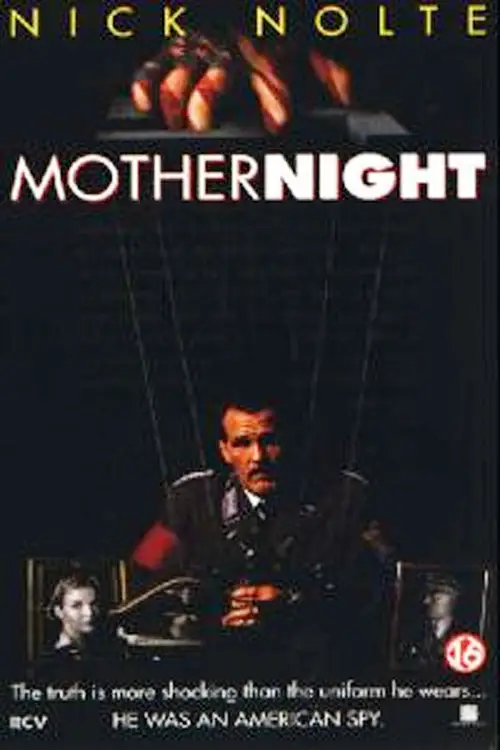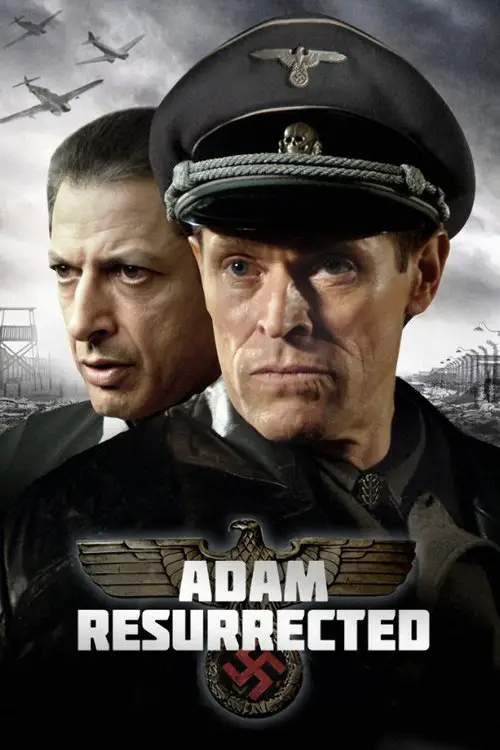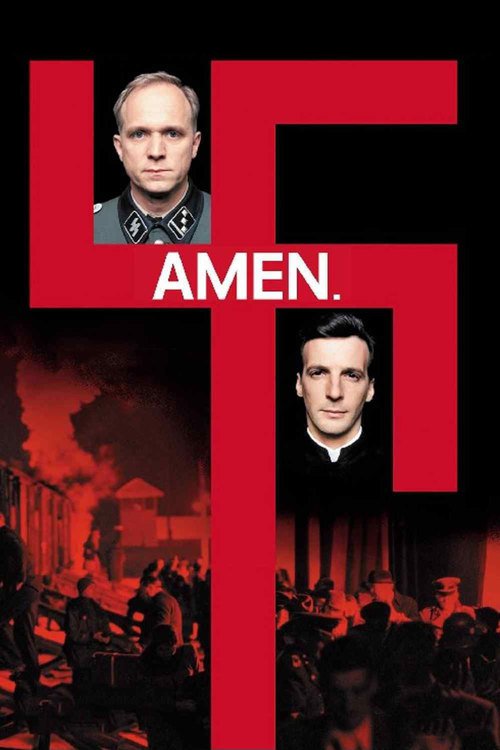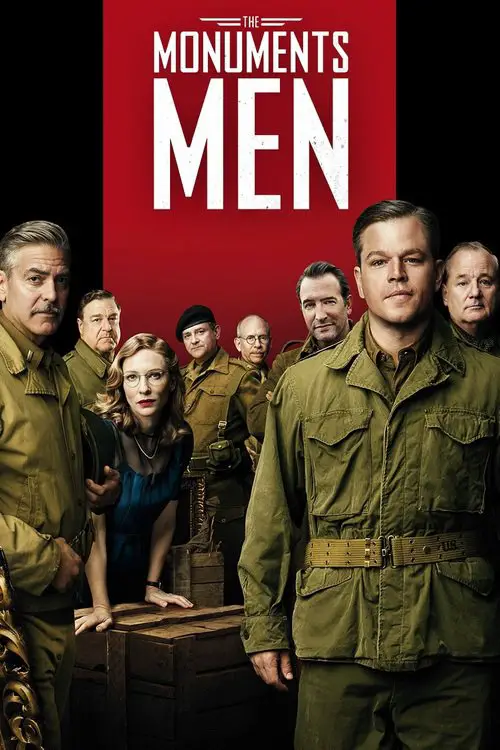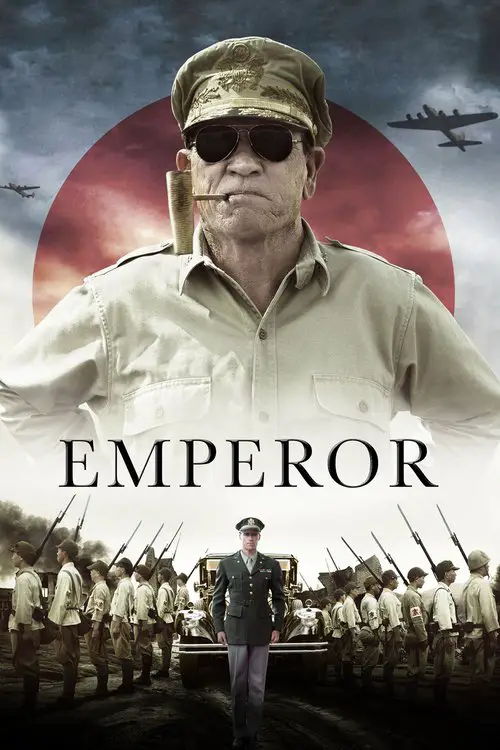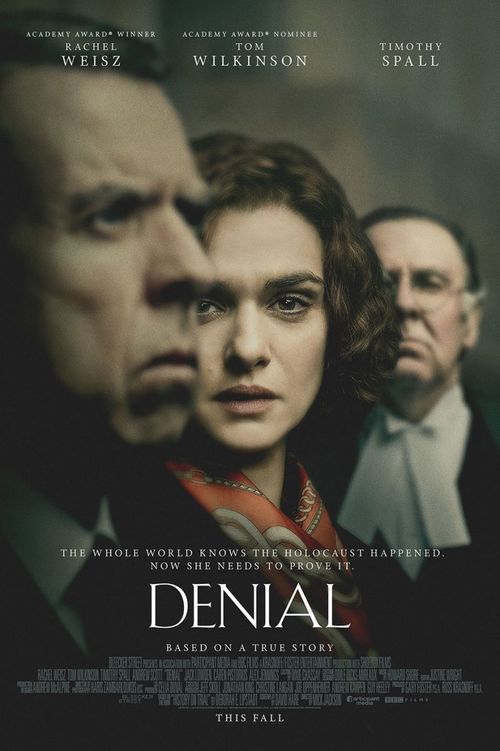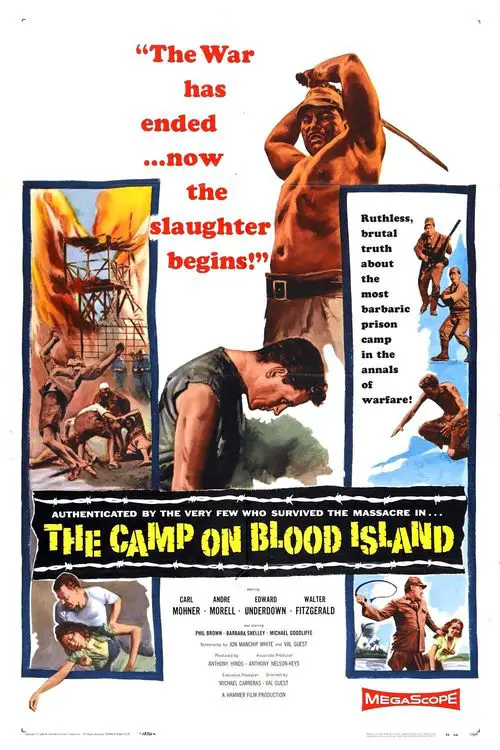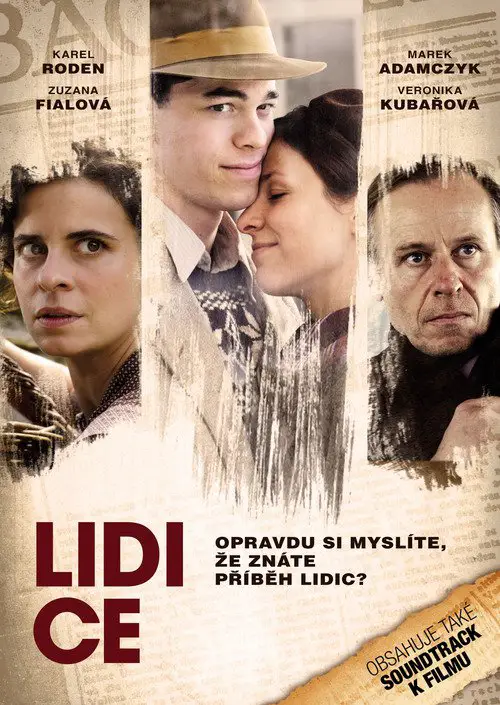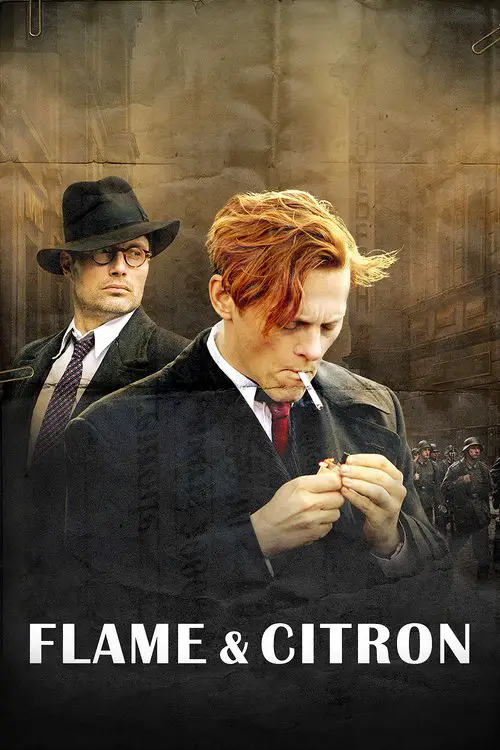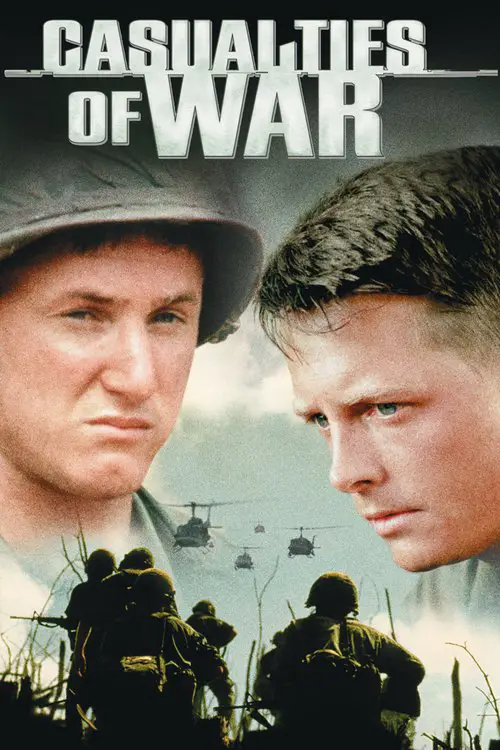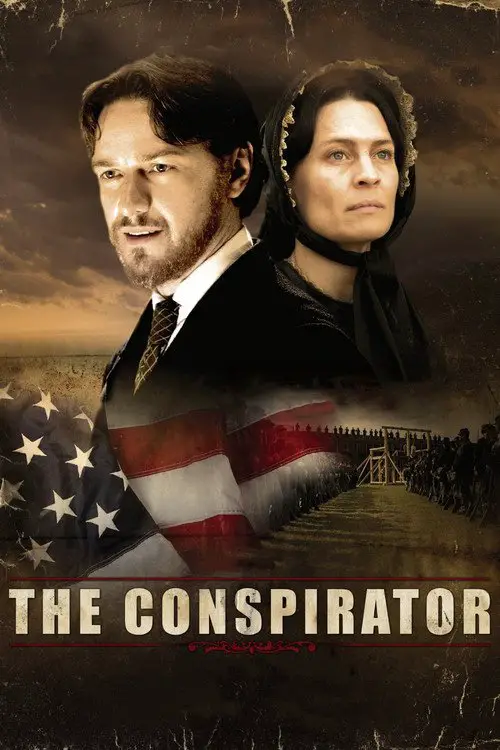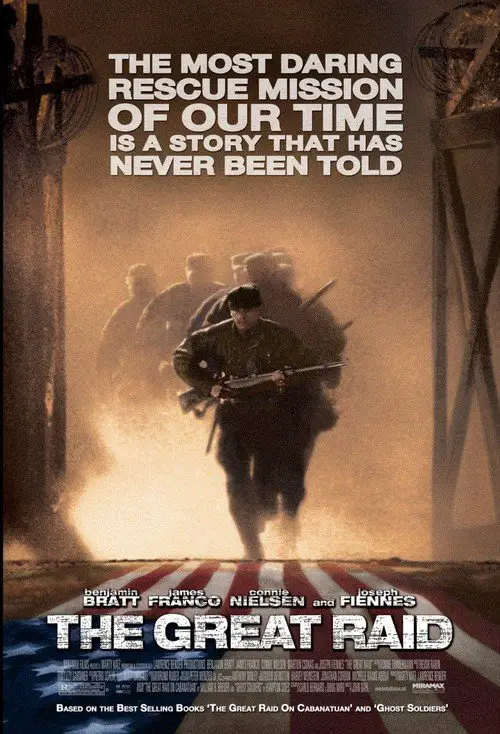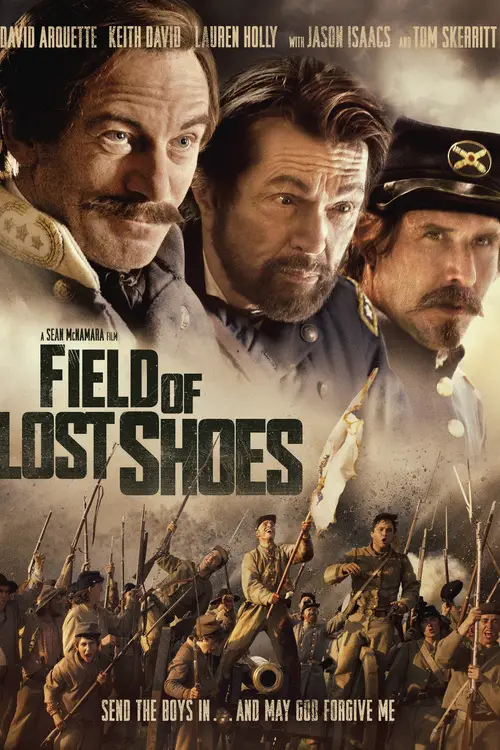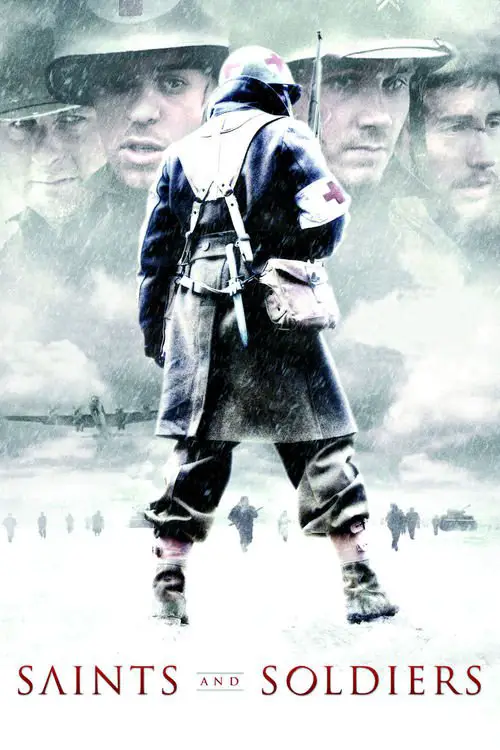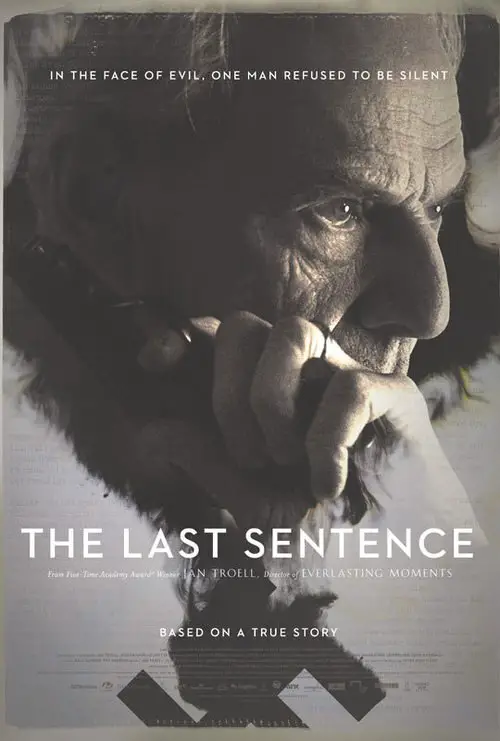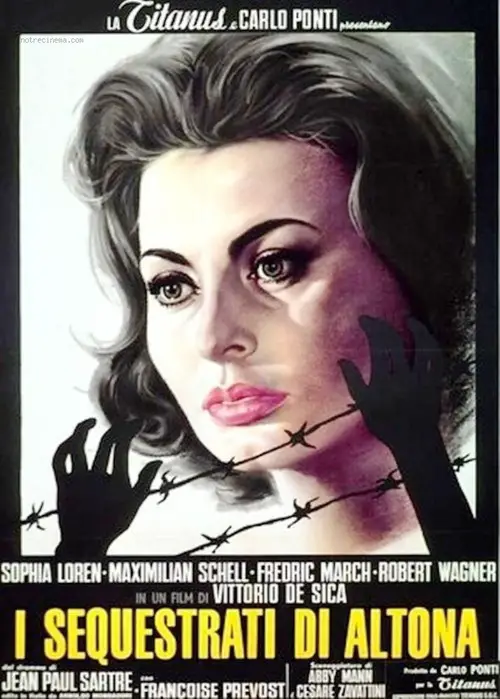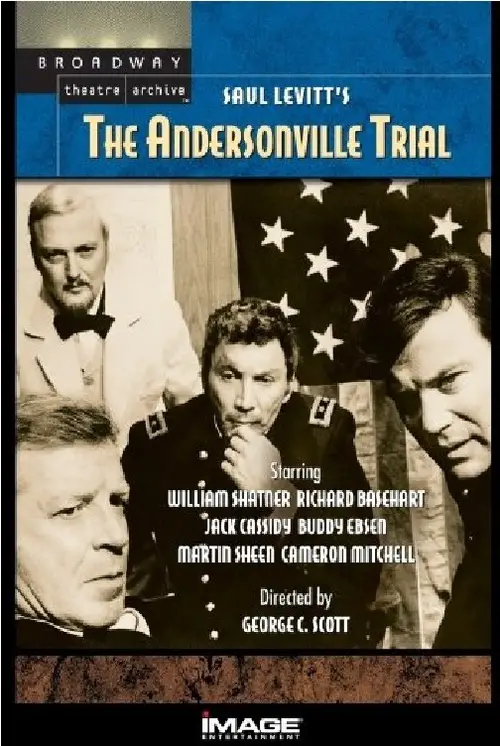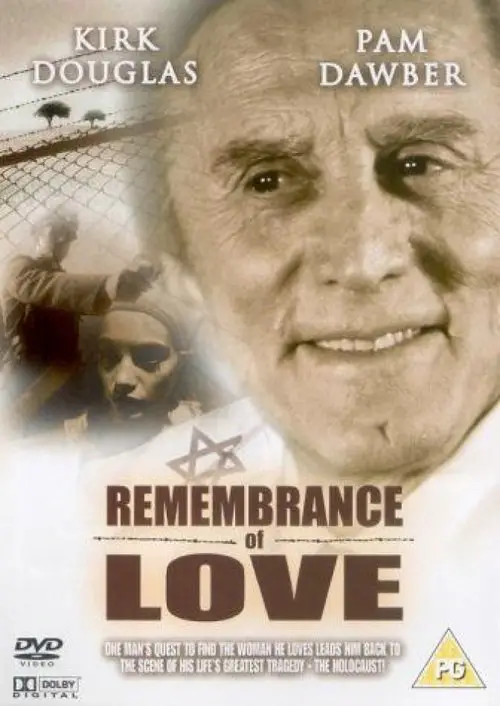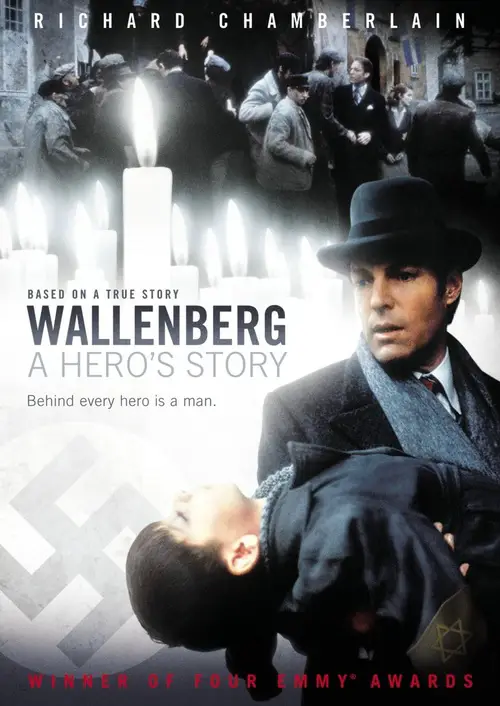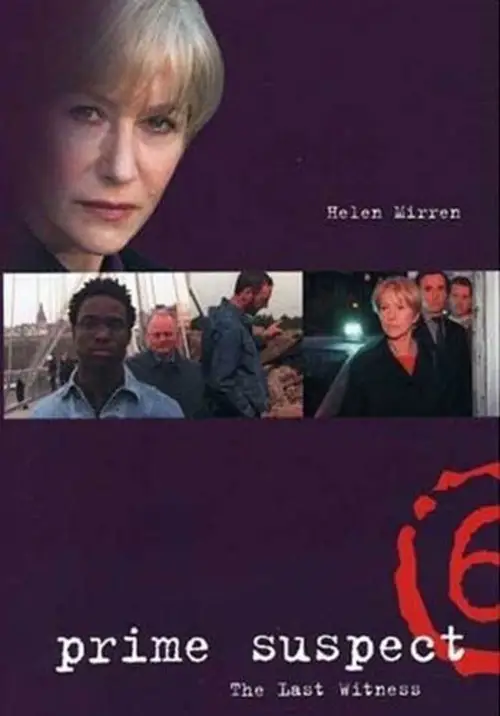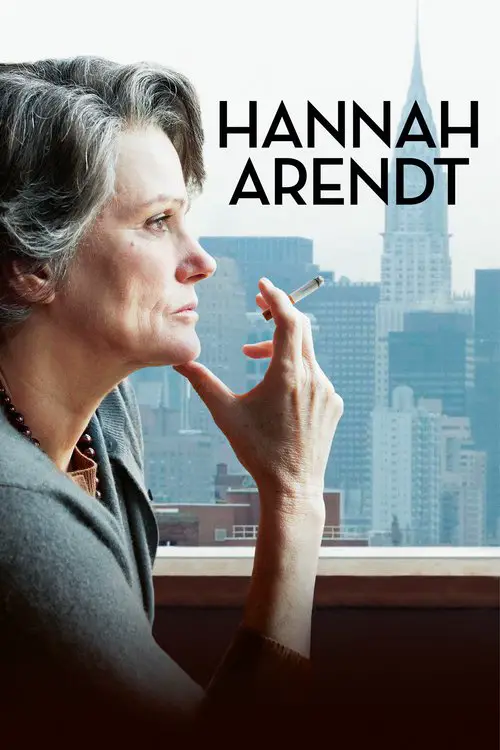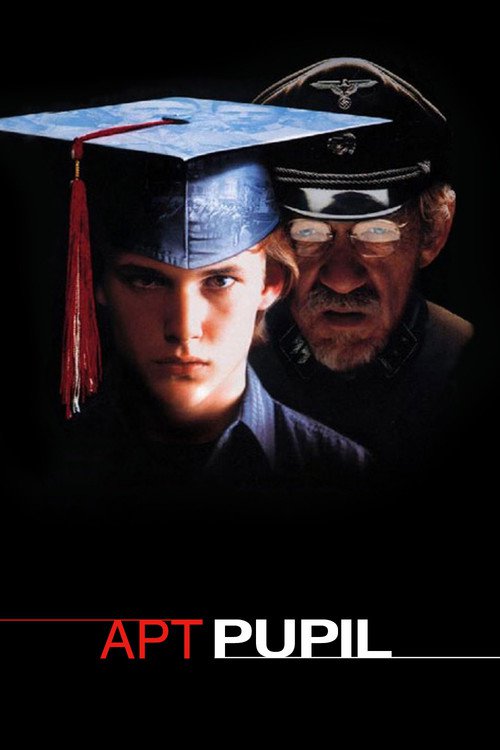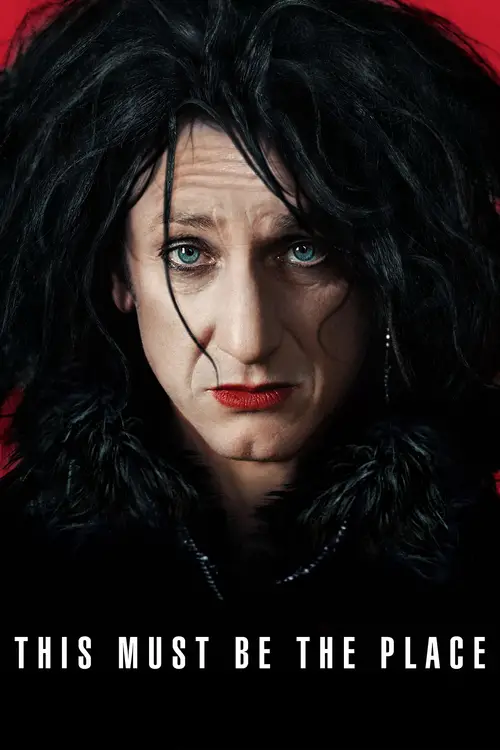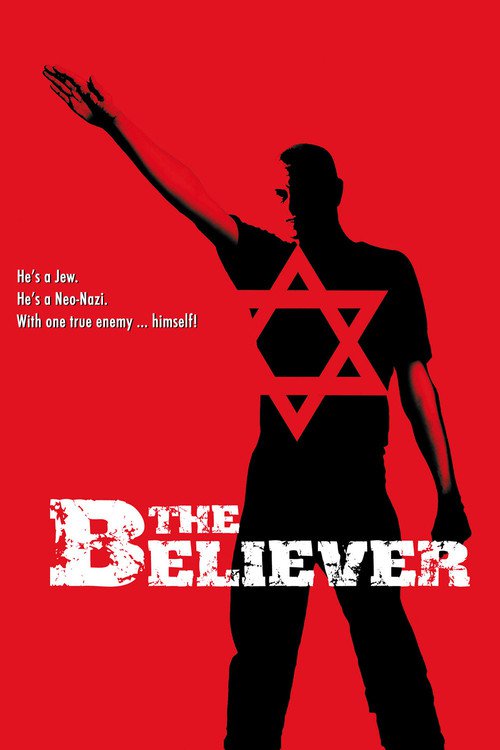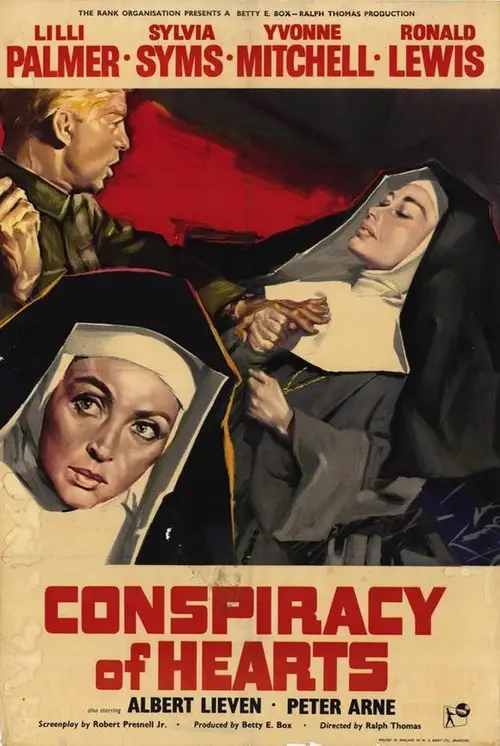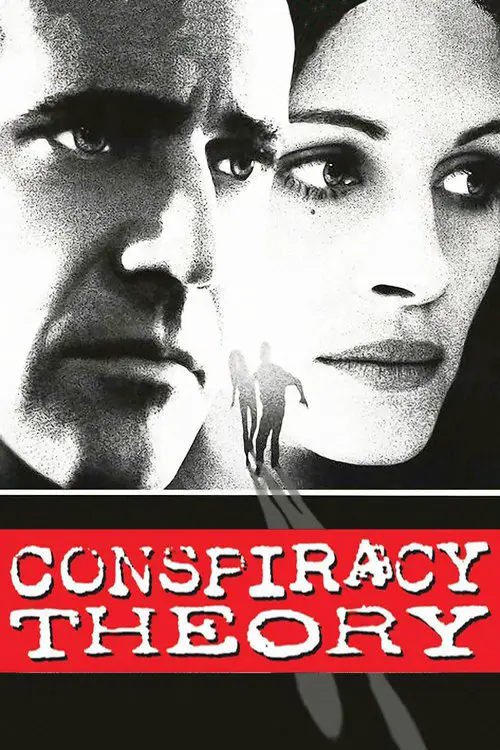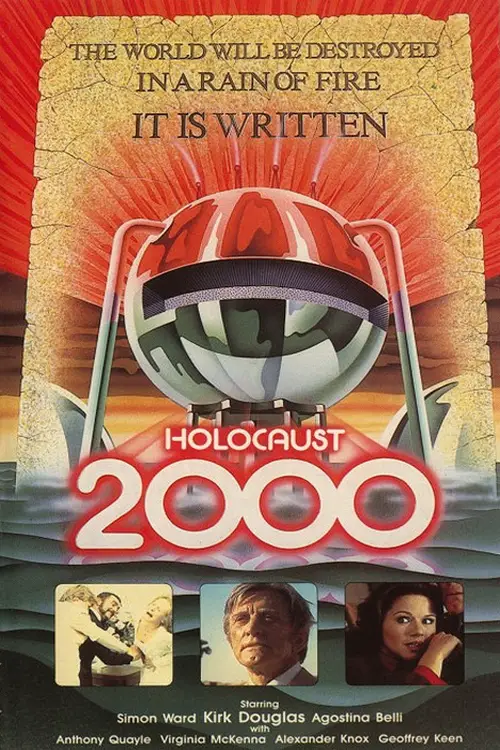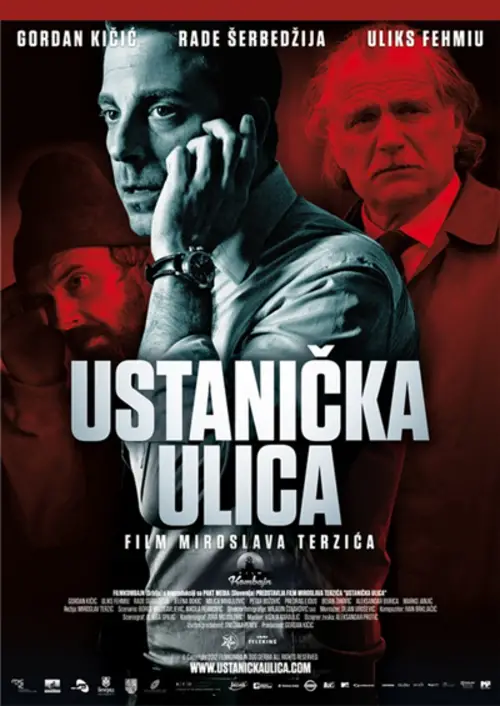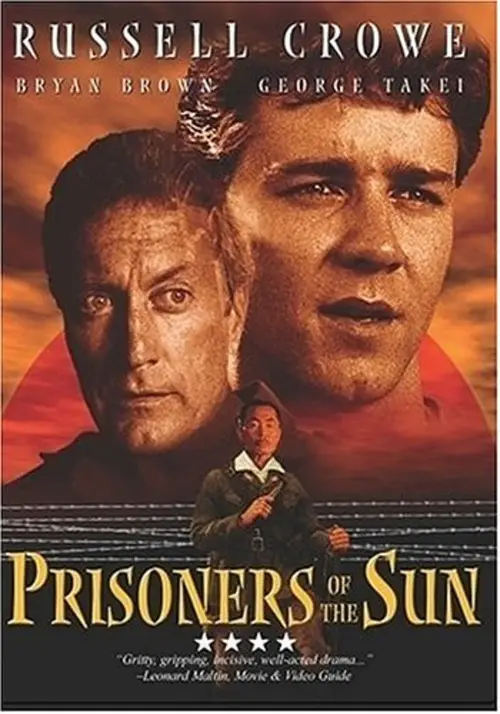Conspiracy (2001)

Similar movies
An exciting drama from a detective history. In 1899 a dead girl - seamstress Anežka Hrůzová - was found between the village of VÄžniÄka and the town of Polná. She was 19 and she had a cutting wound on the throat. There was no sexual violence involved and since the local doctors thought that there was not enough blood on the crime scene, everyone jumped to the conclusion that Jews must have killed her and added her blood to their passover matzot. There was a potential murderer at hand too - a cheeky, not very bright young Jewish rover, Leopold Hilsnerâ¦
True story of Germany's most famous anti-Nazi heroine brought to thrilling, dramatic life. Sophie Scholl stars Julia Jentsch in a luminous performance as the fearless activist of the underground student resistance group, The White Rose. Armed with long-buried historical records of her incarceration, director Marc Rothemund expertly re-creates the last six days of Sophie Scholl's life.
During the Boer War, three Australian lieutenants are on trial for shooting Boer prisoners. Though they acted under orders, they are being used as scapegoats by the General Staff, who hopes to distance themselves from the irregular practices of the war. The trial does not progress as smoothly as expected by the General Staff, as the defence puts up a strong fight in the courtroom.
Before the war, in Berlin, Adam was an entertainer- cabaret impresario, magician, musician-loved by all until he finds himself in a concentration camp, confronted by Commandant Klein. Adam survives the camp by becoming the Klein's "dog", entertaining him while his wife and daughter are sent off to die. "Adam Resurrected" is the story of a man who once was a dog who meets a dog who once was a boy.
The film "Amen." examines the links between the Vatican and Nazi Germany. The central character is Kurt Gerstein, a member of the Institute for Hygiene of the Waffen-SS who is horrified by what he sees in the death camps. Moreover, he is shocked to learn that the process he used to purify water for his troops, by using zyklon, served as a basis to kill people in gas chambers.
Based on the true story of the greatest treasure hunt in history, The Monuments Men is an action drama focusing on seven over-the-hill, out-of-shape museum directors, artists, architects, curators, and art historians who went to the front lines of WWII to rescue the worldâs artistic masterpieces from Nazi thieves and return them to their rightful owners. With the art hidden behind enemy lines, how could these guys hope to succeed?
During the Nazi occupation of Czechoslovakia, surgeon Dr. Franticek Svoboda (Brian Donlevy), a Czech patriot, assassinates the brutal "Hangman of Europe", Reichsprotektor Reinhard Heydrich (Hans Heinrich von Twardowski), and is wounded in the process. In his attempt to escape, he is helped by history professor Stephen Novotny (Walter Brennan) and his daughter Mascha (Anna Lee).
Open City is a landmark in film history. Filmed in secrecy during the Nazi occupation of Italy, the film shows a realistic portrayal of the underground resistance in Italy in 1945. The film has strong impacting imagery with itâs mix of fiction and reality that strengthened Italian Neo-realism and the film industry.
A dramatic history of Pu Yi, the last of the Emperors of China, from his lofty birth and brief reign in the Forbidden City, the object of worship by half a billion people; through his abdication, his decline and dissolute lifestyle; his exploitation by the invading Japanese, and finally to his obscure existence as just another peasant worker in the People's Republic.
Set in a Japanese prisoner of war camp during World War II, the film focuses on the brutality and horror that the allied prisoners were exposed to as the Japanese metered out subjugation and punishment to a disgraced and defeated enemy. This harrowing drama concentrates on the deviations of legal and moral definitions when two opposing cultures clash. Although fictional, this was one of the earliest films to deal realistically with life and death in a Japanese prisoner-of-war camp during the Second War.
PÅÃbÄh Lidic, je pÅÃbÄhem obyÄejných lidÃ, kteÅà se absurdnà shodou náhod pÅipletli do cesty dÄjinám. Film pÅibližuje osudy obyvatel Lidic skrz mezilidské vztahy, a to zejména lásku, která stojà na zaÄátku celého pÅÃbÄhu. Rok 1942 â nÄmecká propaganda úzkostlivÄ tajà genocidu páchanou na civilnÃm obyvatelstvu. Po atentátu na druhého muže tÅetà ÅÃÅ¡e Reinharda Heydricha vÅ¡ak udÄlá výjimku. Po vypálenà malé Äeské vesnice Lidice, vÅ¡e vyhlásà do svÄta. Jako záminka k vypálenà obce staÄà jeden milostný dopis. V dobÄ svého tragického konce, v Äervnu 1942, mÄly Lidice za sebou dÄjiny trvajÃcà nejménÄ Å¡est staletÃ. Nacisté chladnÄ popravili vÅ¡echny lidické muže, ženy a dÄti nechali pÅevézt do koncentraÄnÃho tábora. NÄkteré dÄti dali na pÅevýchovu. Celková bilance â 192 popravených mužů, 58 žen zemÅelo v koncentraÄnÃch táborech a 88 dÄtà bylo posláno do plynu. Obec Lidice byla vymazána z map a srovnána se zemÃ. Výpravný velkofilm Lidice je natoÄen podle skuteÄné události.
During Nazi occupation, red-headed Bent Faurschou-Hviid ("Flame") and Jørgen Haagen Schmith ("Citron"), assassins in the Danish resistance, take orders from Winther, who's in direct contact with Allied leaders. One shoots, the other drives. Until 1944, they kill only Danes; then Winther gives orders to kill Germans. When a target tells Bent that Winther's using them to settle private scores, doubt sets in, complicated by Bent's relationship with the mysterious Kitty Selmer, who may be a double agent. Also, someone in their circle is a traitor. Can Bent and Jørgen kill an über-target, evade capture, and survive the war? And is this heroism, naiveté, or mere hatred?
Max Manus is a Norwegian 2008 biographic war film based on the real events of the life of resistance fighter Max Manus (1914â96), after his contribution in the Winter War against the Soviet Union. The story follows Manus â played by Aksel Hennie â through the outbreak of World War II in Norway until peacetime in 1945.
In 1944 Poland, a Jewish shop keeper named Jakob is summoned to ghetto headquarters after being caught out after curfew. While waiting for the German Kommondant, Jakob overhears a German radio broadcast about Russian troop movements. Returned to the ghetto, the shopkeeper shares his information with a friend and then rumors fly that there is a secret radio within the ghetto.
The Nazis, exasperated at the number of escapes from their prison camps by a relatively small number of Allied prisoners, relocates them to a high-security "escape-proof" camp to sit out the remainder of the war. Undaunted, the prisoners plan one of the most ambitious escape attempts of World War II. Based on a true story.
A group of German boys are ordered to protect a small bridge in their home village during the waning months of the second world war. Truckloads of defeated, cynical Wehrmacht soldiers flee the approaching American troops, but the boys, full of enthusiasm for the "blood and honor" Nazi ideology, stay to defend the useless bridge.
The invasion of a village in Byelorussia by German forces sends young Florya (Alexei Kravchenko) into the forest to join the weary Resistance fighters, against his family's wishes. There he meets a girl, Glasha (Olga Mironova), who accompanies him back to his village. On returning home, Florya finds his family and fellow peasants massacred. His continued survival amidst the brutal debris of war becomes increasingly nightmarish, a battle between despair and hope.
City of Life and Death takes place in 1937, during the height of the Second Sino-Japanese War. The Imperial Japanese Army has just captured the then-capital of the Republic of China, Nanjing. What followed was known as the Nanking Massacre, or the Rape of Nanking, a period of several weeks wherein tens of thousands of Chinese soldiers and civilians were killed.
Nathan Algren is an American hired to instruct the Japanese army in the ways of modern warfare -- in this lush epic set in the 1870s, which finds Algren learning to respect the samurai and the honorable principles that rule them. Pressed to destroy the samurai's way of life in the name of modernization and open trade, Algren decides to become an ultimate warrior himself and to fight for their right to exist.
Renowned journalist Torgny Segerstedt declares war against Hitler as he criticizes Swedish politicians who tried to look away from the tyranny of the Nazis with the good excuse of âneutralismâ. His only weapon is his pen and his life is full of gossip such as an affair with his bossâ wife, a love scandal with a secretary younger than his daughter, and the suicide of his wife. However, he continues to fight a one man battle against Hitler and the Nazi regime until his death, throwing the question âCan one person really change history?â to the audience.
Joe Rabin is a Holocaust survivor. After the war he went to America, married someone and had a family. Today, he is on his way to Israel for a reunion of Holocaust survivors. It seems that he has another reason for going. It seems like during the war, he had a girlfriend and they were separated and she was pregnant. He has never found out what happened to her, or their baby, he hopes to find out now.
Orson Welles plays an escaped Nazi war criminal. After the war, he fled to the United States and assumed the name of Charles Rankin. Engaged to the unsuspecting daughter of a Chief Justice of the Supreme Court and posing as a college professor, he had the perfect cover. No one would think to look for a notorious Nazi war criminal in the sacred precincts of the Harper's School...
Hannah Arendt is a portrait of the genius that shook the world with her discovery of âthe banality of evil.â After she attends the Nazi Adolf Eichmannâs trial in Jerusalem, Arendt dares to write about the Holocaust in terms no one has ever heard before. Her work instantly provokes a furious scandal, and Arendt stands strong as she is attacked by friends and foes alike. But as the German-Jewish émigré also struggles to suppress her own painful associations with the past, the film exposes her beguiling blend of arrogance and vulnerability â revealing a soul defined and derailed by exile.
Neighborhood boy Todd Bowden (Renfro) discovers that an old man living on his block named Arthur Denker (Mackellan) is nazi war criminal. Bowden confronts Denker and offers him a deal: Bowden will not go to the authorities if Denker tells him stories of the concentration camps in WWII. Denker agrees and Bowden starts visiting him regularly. The more stories Bowden hears, the more it affects him.
A film based on the semi-autobiographical novel of the same name by American writer Jonathan Safran Foer, in which a young Jewish American man endeavorsâwith the help of eccentric, distant relativesâto find the woman who saved his grandfather during World War II, in a Ukrainian village which was ultimately razed by the Nazis.
Eyal, an Israeli Mossad agent, is given the mission to track down and kill the very old Alfred Himmelman, an ex-Nazi officer, who might still be alive. Pretending to be a tourist guide, he befriends his grandson Axel, in Israel to visit his sister Pia. The two men set out on a tour of the country during which, Axel challenges Eyal's values.
In late 1930s Ferrara, Italy, the Finzi-Continis are a leading family: wealthy, aristocratic, and urbane; they are also Jewish. Their adult children, Micol and Alberto, gather a diverse circle of friends for tennis and parties at their villa with its lovely grounds, and try to keep the rest of the world at bay. But tensions between them all grow as anti-Semitism rises in Fascist Italy, and even the Finzi-Continis will have to confront the Holocaust.
Tells the story of Michael Berg, a German lawyer who as a teenager in the late 1950s had an affair with an older woman, Hanna, who then disappeared only to resurface years later as one of the defendants in a war crimes trial stemming from her actions as a concentration camp guard late in the war. He alone realizes that Hanna is illiterate and may be concealing that at the expense of her freedom.
UstaniÄka ulica is a Serbian political thriller. DuÅ¡an IliÄ (Gordan KiÄiÄ), employed at the Serbian state prosecutor's office, gets a top secret case to investigate a war crime committed by a disbanded paramilitary unit. He manages to find MiÄun (Uliks Fehmiu) who's the only surviving witness.
On an obscure Pacific Island just north of Australia, the Japanese Empire has operated a prisoner of war camp for Australian soldiers. At the close of World War II, the liberated POWs tell a gruesome tale of mass executions of over eight hundred persons as well as torture style killings of downed Australian airmen. In an attempt to bring those responsible to justice, the Australian Army establishes a War Crimes Tribunal to pass judgement on the Japanese men and officers who ran the Ambon camp. In an added twist, a high ranking Japanese admiral is implicated, and politics become involoved with justice as American authorities in Japan lobby for the Admiral's release. Written by Anthony Hughes
© Valossa 2015–2026
| Privacy Policy

